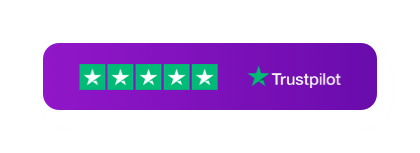
4G National Broadband
Unlimited 4G broadband
25Mb / second
Average speed
Unlimited
Usage
£39.99 / month
£99 upfront fees
Compare Broadband
4G home broadband
4G home broadband is an ideal solution for those who live in rural areas with no fibre cables or 5G options. In this guide, we’ll help you to determine if 4G is for you and we’ll also point you towards the best 4G deals currently available.
What is 4G home broadband?
4G is a widely available mobile internet technology that your phone uses to get online. It’s faster than 3G, and slower than 5G, but the 5G rollout is still in it’s early stages anyway. 4G home broadband uses the same network to get online at home, often offering higher speeds than ADSL connections in areas without fibre coverage.
4G home broadband requires a router to work. This router allows 4G for home use to improve on 4G smartphone connections since the hardware is more powerful than a mobile phone. 4G broadband also has the potential to provide internet to several devices at once, which is more than a smartphone is capable of hosting.
How fast is 4G?
In perfect conditions, 4G can reach speeds up to 42Mbps, although most speeds average between 20Mbps to 30Mbps. This is because there are many external factors that can affect your signal and the final speed that’s achieved. For example, the further you live from a cell tower, the slower your 4G connection will be. Even the type of building materials used in your house can determine the final speed result!
For comparison, ADSL connections tend to top out at around 17Mbps, but speeds of 10-11Mbps are standard. Fibre connections, on the other hand, can go as high as 1Gbps or more, but the 30-60Mbps range is more common.
How reliable is 4G?
4G home broadband has improved over the years to become more reliable and it’s not often that you’ll find a connection to be weak, excessively slow, or unstable.
However, if you do find that your 4G home broadband connection isn’t performing as well as it should, then you may benefit from a compatible external antenna. This type of antennae has the ability to pick up an outdoor 4G signal, and then feed it to your router.
Is 4G broadband for me?
At the moment, fibre broadband is the most economical way to have access to the internet, especially if you want fast connectivity at an affordable price. However, if you’re unable to get fibre to your home or if you’re looking for a less permanent set-up, then 4G is a good alternative.
One of the best things about 4G home broadband is that it doesn’t rely on cables to function. This means that you can take your router with you and, provided there’s signal, it can be used on the go. It’s this mobility that makes 4G broadband ideal for those who are renting or frequently move between houses.
4G home broadband in rural areas
4G home broadband is ideal for use in rural areas of the country that are yet to benefit from access to fibre. If you only see slower ADSL deals available when you run a postcode check to see what’s on offer in your area, consider going for 4G home broadband instead.
Is 4G home broadband available in my area?
4G broadband coverage has expanded over recent years to reach most areas in the UK. In fact, approximately 99% of UK homes are within range of the service. But just to make sure, it’s always a good idea to confirm you’re in range before subscribing to a service.
Checking to see if you have 4G in your area is easy - simply enter your postcode into a broadband coverage checker for confirmation.
Last reviewed: 10 October 2022
Next review: 10 November 2022
